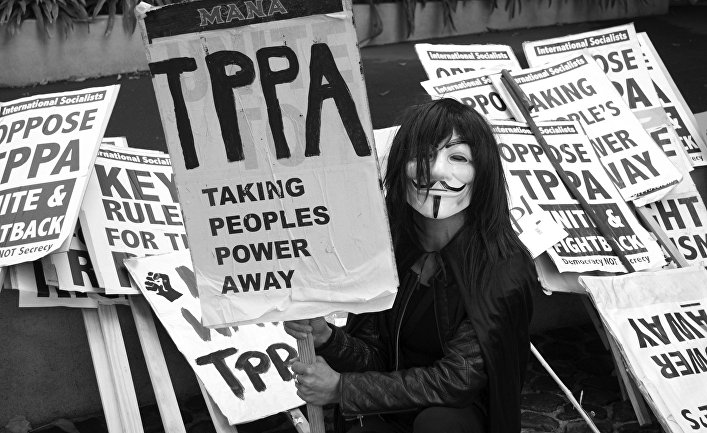Barack Obama is not known as a President who is good at dealing with the Congress. The predictable defeat on Trade Adjustment Assistance (TAA) last week compounded Obama administration's suffering in pushing forward the Trans-Pacific Partnership (TPP), which has already caused controversies in the US and abroad. On the surface, Congress doesn't seem to have objection to TPP. Republicans support this trade deal for the lucrative profits multinational corporations waiting to make overseas. On the other hand, the TPP jeopardizes the interests of other groups of people, mainly blue collar workers, who underwent layoffs and wage shrinking when NAFTA was signed ten years ago.
Neither can afford to damage their relations with interest groups, not with a Presidential election gradually approaching. Obama hopes to accumulate more political legacy in the shortest possible time since the US media already began the countdown of his remaining days as the leader of the country.This downside puts Democrats in the crevice between the President and the populist left-wing voters.
The failed vote on TAA in Congress represents the debate over the "true value" of TPP and reflects the substantial divergence of opinion among various social standings and interests groups in the US. Republicans support the idea of TPP, but reluctant to give the president exclusive right to diplomatic negotiations while Democrats are more concerned with workers' rights and health care issues, rather than some instant utilitarian victory.
But given the current circumstances, it seems beyond his capacity to awake the Democratic Party's team spirit before the next vote in Congress. Facing with strong left-wing populism and increasing trade protectionism, Obama might not have enough strength to match his own ambitions. After all, time doesn't stop and wait for anyone.






